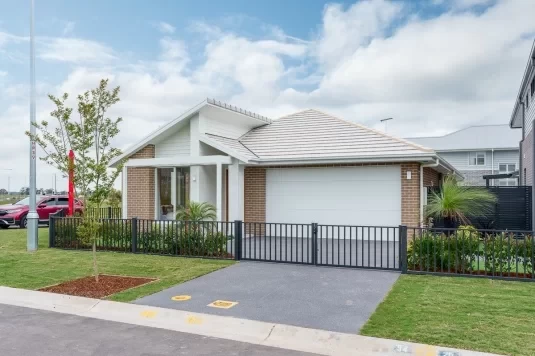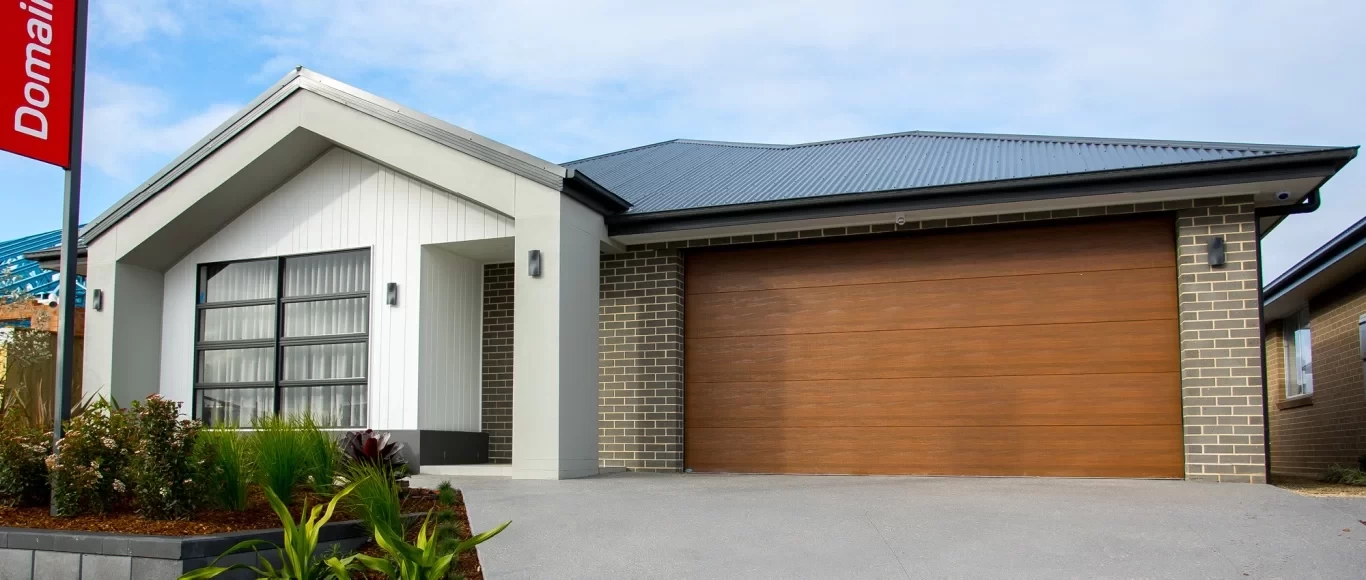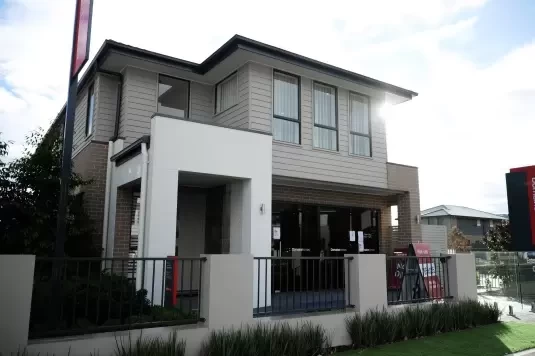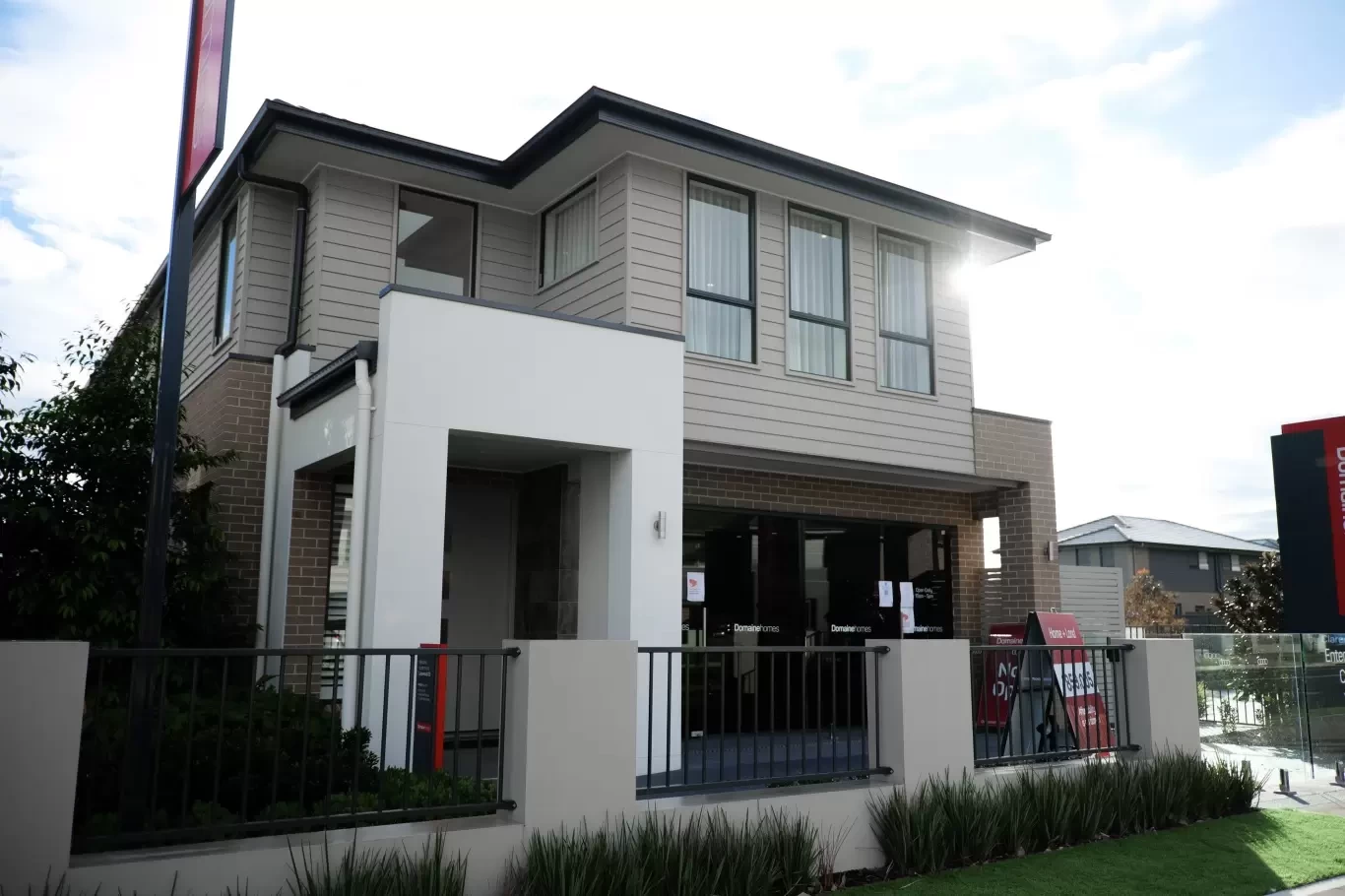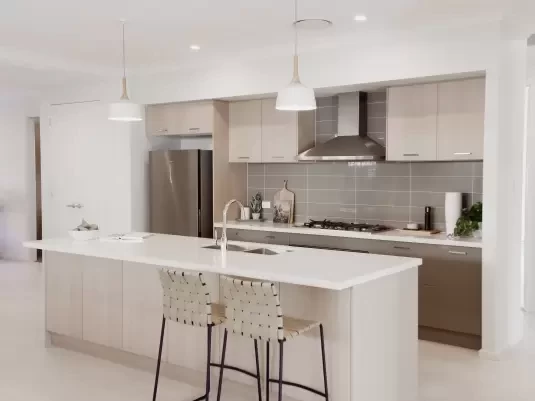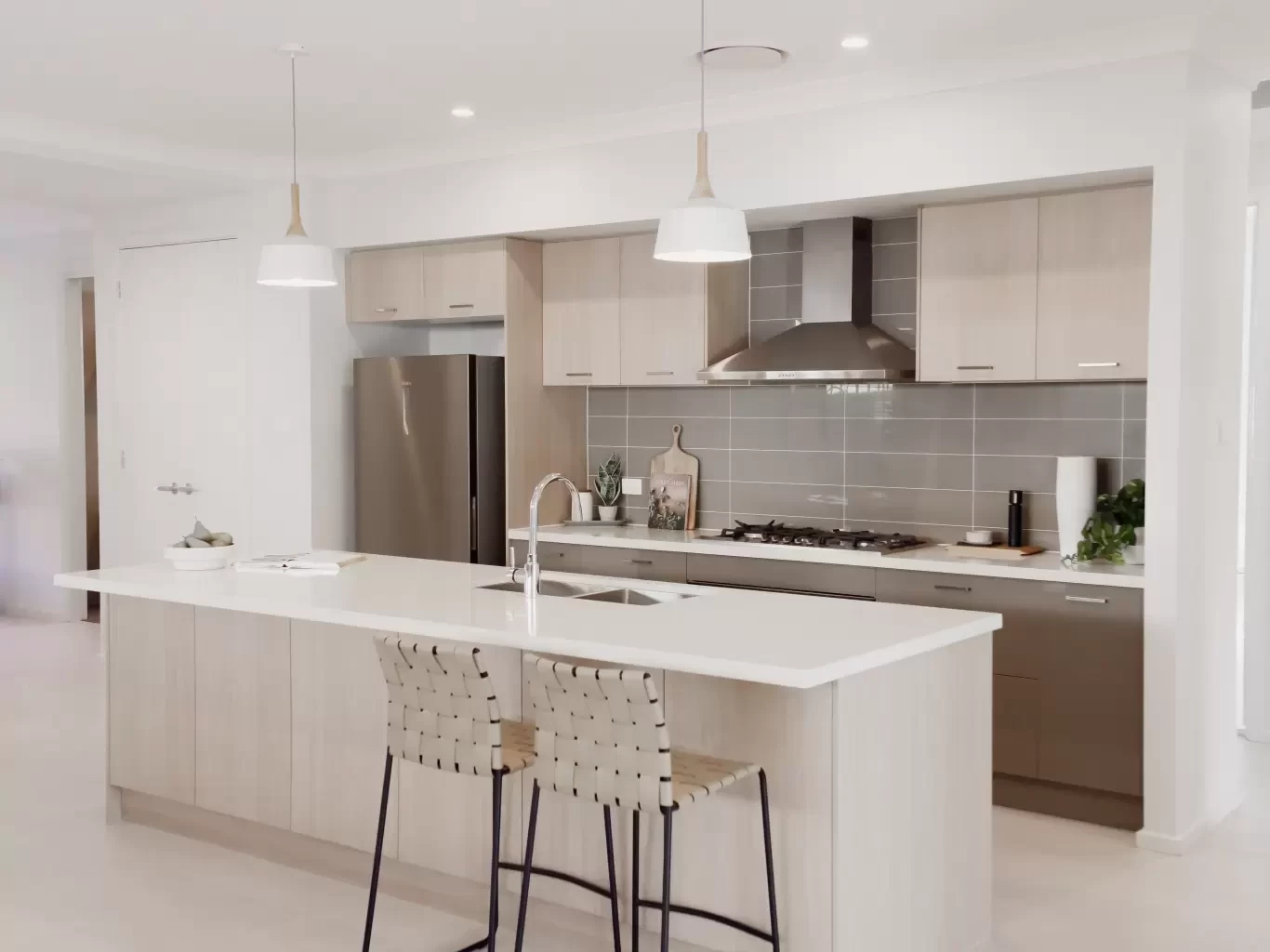Let's transform your building project into reality by unlocking the perfect approval pathway. Here's what you absolutely need to know - most construction work in NSW requires proper authorisation. Your project will need council approval if you're planning a new build, implementing structural changes, or making modifications that impact safety or environmental requirements. The good news? You're covered for basic maintenance and minor repairs without extra paperwork. We've organised the NSW Planning Portal's approval strategies into three efficient paths: the streamlined Complying Development Certificate (CDC), the comprehensive Development Application (DA), or projects that are designed to proceed without formal approval. Let's dive into your project's requirements and maximise your building experience with the right permit strategy.
When Do You Need a Building Permit in NSW?
Building permits are essential for structural modifications and home improvements
Projects valued at $20,000+ require official permits
Non-compliance penalties begin at $1,500
Let's Unlock Your Building Project
In NSW, you're required to secure building permits for most construction work. The NSW Planning Portal reports that 82% of residential projects in 2024 needed proper authorisation. Here's your ultimate guide to permit requirements:
When considering a proposed building, a building surveyor will assess the impact on the existing building and its floor area, ensuring that every aspect complies with the relevant building regulations. While not all building projects require a planning permit, structures such as a retaining wall may trigger the need for additional approvals, including the payment of a building permit levy, to guarantee that safety and compliance standards are maintained.
New home construction absolutely requires permits - no exceptions. According to NSW Department of Planning insights, all 27,453 new homes constructed in 2024 went through the perfect permit process. This covers everything from single-level homes to multi-storey residences, with investment ranges from $250,000 to $1 million+.
Home transformations and extensions need permits when they modify your building's footprint or height. We're talking about second-storey additions, room expansions, and garage transformations. The Building Professionals Board confirms that even modest additions exceeding 20m² require official approval.
Structural modifications definitely need permits. This includes implementing new support systems, creating window or door openings, or optimising roof designs. Professional engineers must validate these changes before you dive in.
Pool and spa installations require specialised permits. The Swimming Pools Act 1992 has crafted specific safety standards and construction requirements. With 15,234 new pool approvals in NSW during 2024, you know these regulations are efficiently enforced.
Expert Insights on Permit Requirements
Let's maximise your permit application success with the right documentation. Here's what you'll need to organise:
Construction plans should feature precise measurements and material specifications. You'll want these designed by licensed professionals. The plans showcase wall configurations, spatial dimensions, and elevation details. NSW Planning needs three copies to process your application.
Engineering certifications confirm your project's structural integrity. Licensed experts will analyse soil conditions and verify load-bearing calculations. While these assessments range from $2,000 to $5,000, they're absolutely essential for your project's success.
Site evaluation reports examine your property's features:
Terrain characteristics and water management
Existing vegetation and preservation strategies
Property boundary considerations
Utility connection points
Council compliance documentation ensures your project aligns with local guidelines. Each municipality features unique specifications for height restrictions, setback requirements, and spatial ratios. Your design must perfectly match these criteria or secure special consideration.
What Building Work is Exempt from Permits?
Small structures under 20m² don't need permits
Basic maintenance and repairs are permit-free
Structure height and placement are key factors
Size Requirements for Exempt Structures
Let's unlock the mystery of permit-free building in NSW. You'll be happy to know that several structures can be built without permits, as long as they meet specific size guidelines. Here's the magic number to remember: 20 square metres - that's your maximum size for most exempt structures.
These structures are designed to be permit-free:
Garden sheds maxing out at 20m²
Carports within the 20m² limit
Pergolas reaching up to 3m high
Ground-level decks (maximum 1m height)
Residential fences up to 1.8m high
You're also looking at these placement requirements:
900mm minimum from property lines
Behind the house's building line
Land slope under 15%
Perfect Shed Dimensions Without Permits
Here's how to maximise that 20m² allowance:
Create a 4m x 5m space
Go for a 4.5m x 4.5m layout
Transform the area with multiple smaller sheds
Everyday Home Improvements That Don't Need Permits
We've got great news about regular home maintenance - most of it's permit-free. Here's what you can absolutely do without approval:
Transform your walls with fresh paint
Upgrade kitchen cabinets (non-structural)
Replace windows (same size, no structural changes)
Install new doors
Handle basic plumbing tasks like:
Fix those dripping taps
Update old toilets
Repair pipe issues
Get electrical repairs done by certified pros
Building Permits Survey Methodology shows that 99% of private housing units are built in areas requiring permits, highlighting the importance of understanding these exemptions.
Expert Requirements for Exempt Work
Even with permit-free projects, you'll need the right professionals:
Licensed electricians for all electrical work
Certified plumbers for water systems
Qualified gas fitters for any gas work
These rules are crafted for your safety. You'll need proper approval if your project involves:
Structural walls
Fire safety equipment
Drainage systems
Building structural changes
Consequences of Building Without Approval
Let's dive into the serious implications of proceeding without proper building approval. You're about to discover why skipping this crucial step can transform your project into an expensive nightmare.
Legal Penalties
When it comes to unauthorised construction in NSW, the consequences are absolutely serious. Property owners face steep fines up to $110,000 - that's not a typo! Here's what you need to know: Local councils start with penalty notices of $1,500 for even minor violations, and these can escalate quickly.
Expert real estate attorney David Roberson puts it perfectly: "There are very few items that you can construct without legally being required to get a permit." This perfectly captures why you need to be strategic about your building plans.
The daily penalties are designed to maximise compliance, and they'll continue until you've addressed the issue. These aren't just one-time fees - they're ongoing financial drains that can seriously impact your budget. Council officers have been empowered to take immediate action, including issuing stop-work orders and, in extreme cases, demanding complete demolition of unauthorised structures.
Long-Term Impact
Building without approval creates a cascade of complications that extend far beyond initial fines. According to Homelight, when it's time to sell your property, you'll face significant challenges. Potential buyers often demand substantial price reductions, transforming your investment into a liability.
Here's what happens with your insurance coverage:
Insurance providers may refuse to cover unauthorised work
Your existing policy could be cancelled
Premium rates typically skyrocket
Specific areas might become uninsurable
The safety certification process becomes particularly challenging with unauthorised work. You'll need to address:
Essential fire safety requirements
Critical structural standards
Mandatory electrical compliance
Required plumbing regulations
Looking to fix things? Retrospective approval often costs significantly more than getting it right the first time. You'll need to organise:
Professional assessments
Detailed engineering reports
Modifications to meet compliance
Additional council fees
To put this in perspective, New York City's Department of Buildings collected over $1 million in penalties from unauthorised alterations in just one month. We've seen how seriously authorities take these violations, and you'll want to avoid becoming part of these statistics.
How to Get Building Approval in NSW
Let's unlock your building project's success with our expertly crafted approval strategy. We've designed this ultimate guide to maximise your chances of a smooth approval process, perfectly tailored for any project type.
Step 1: Transform Your Idea into an Approval Path
You're about to make a crucial decision that'll shape your entire project journey. Here's how to choose the perfect approval path for your build.
Development Applications (DAs) are designed for more complex transformations. They're perfect for projects that need detailed assessment, typically taking 40-90 days through council review.
Complying Development Certificates (CDCs) are your fast-track option for straightforward projects. With approval possible in just 20 days through private certifiers or council, they're absolutely efficient for projects meeting preset standards.
Construction Certificates (CCs) come into play after your DA success. They're your gateway to ensuring your detailed plans align perfectly with your approval and building codes.
Unlock Your Ideal Path
Planning a new home or major renovation? Your strategy starts with a DA
Got a simple addition that fits state guidelines? CDC is your perfect match
Already secured your DA? Time to organise your CC
Step 2: Organise Your Documentation
Let's dive into the documentation that'll maximise your approval success. We've crafted this checklist to help you nail every detail.
Your site plans should feature:
Clear property boundaries
Strategic building positioning
Precise boundary measurements
Accurate north point
Detailed site levels
Comprehensive landscaping plans
Construction drawings must showcase:
Detailed floor plans
Complete elevations
Professional sections
Specific construction details
Exterior finishes and colours
Essential Certificates
BASIX certificates are your key to environmental compliance. You'll need one for:
New home builds
Additions valued over $50,000
Pools exceeding 40,000 litres
Your cost estimates should cover:
All materials
Labour requirements
Professional services
GST inclusion
Step 3: Implement Your Submission Strategy
Recent insights from state planning data show 21,223 successful dwelling approvals through local councils in the December quarter. Here's how to join these success stories:
Submit your application through:
NSW Planning Portal online platform
Your chosen private certifier for CDCs
Your local council's system
Cover your fees strategically:
DA fees scale with project value
CDC fees vary by certifier
CC fees require separate payment
Expert Application Management
Maximise your application success:
Monitor emails daily
Provide prompt 24-hour responses
Maintain comprehensive communication records
Execute weekly progress checks
Track your progress via:
NSW Planning Portal for DA submissions
Your certifier's tracking system
Council's online platform
Transform Common Pitfalls into Success
Submit complete, thorough documentation
Utilise current, updated forms
Execute proper neighbour notifications
Respond promptly to council requests
Wait for approval before starting work
Leverage Professional Expertise
Consider partnering with:
Skilled building designers
Efficient private certifiers
Experienced planning consultants
Professional surveyors
Maintain detailed records of:
Every submission
Council interactions
Expert guidance
Inspection outcomes
Plan modifications
Perfect Your Final Approval Steps
Once you've secured approval:
Obtain written confirmation
Display your permit prominently
Schedule required inspections
Follow all conditions precisely
Maintain onsite documentation
Essential Terms and Definitions
Expert insights into building approvals you'll need for your NSW project
Perfect guide to understanding key officials and their roles
Ultimate breakdown of essential documents, requirements, and costs
Types of Building Approvals
Let's unlock your understanding of Development Applications (DAs) in NSW. Your DA is the foundation that transforms your construction dreams into reality. Here's what you need to know: councils typically process DAs within 40-90 days, with investment ranging from $1,000 to $10,000 based on your project's scope.
Construction Certificates (CCs) are your gateway to breaking ground. These essential documents confirm your plans perfectly align with the Building Code of Australia and DA requirements. Whether you choose a private certifier or council officer, they'll examine structural details, safety features, and environmental considerations. Expect to invest between $2,000 to $5,000, depending on your project's complexity.
Occupation Certificates (OC) are your final stamp of approval. You've got two options: interim OCs for partial building use during ongoing work, and final OCs that confirm complete compliance. These certificates typically range from $500 to $2,000, representing your project's successful completion.
Key Building Officials
Your Principal Certifying Authority (PCA) is absolutely crucial for NSW construction success. They're your quality assurance experts, conducting essential inspections at every critical stage. PCAs maximise compliance by verifying your approved plans and issuing occupation certificates, with efficient response times of 2-3 business days for any concerns.
We've got fantastic news about private certifiers - they're your efficiency experts! While following identical standards as council certification, they often deliver faster results. The Building Professionals Board features expertly accredited certifiers (A1 to E1), with services ranging from $3,000 to $8,000 for comprehensive project oversight.
Council building inspectors are your compliance champions. They're designed to ensure safety through strategic site inspections and rapid complaint resolution. These experts transform potential issues into solutions, responding within 48 hours for urgent matters.
Important Documents
Let's dive into Section 10.7 certificates, your property's identity card. Choose between basic ($53) and detailed ($133) options, unlocking essential information about zoning, heritage status, and development potential. You'll receive these within 2-5 working days.
BASIX certificates showcase your commitment to sustainable building. They're perfectly crafted to evaluate water efficiency, thermal comfort, and energy optimisation. Investment ranges from $50-$300 based on project size, and they're valid for 3 months during your DA journey.
Home warranty insurance is your protection strategy for quality building work. For projects exceeding $20,000, it's your shield, covering structural elements for 6 years and non-structural components for 2 years. Expect premium costs between 0.5% to 2.5% of your contract value.
Application Processing Requirements
The NSW Planning Portal is your ultimate digital hub for building approvals. Here's what you need to know about file requirements:
PDFs must be under 100MB
DWG files for technical drawings
Pre-lodgement feedback arrives in 5-10 business days
Initial assessment takes 2-3 weeks
You've got 7-14 days for information requests
Compliance Verification Steps
Transform your project with these essential inspection stages:
Foundation stage: Prior to concrete pour
Frame stage: Before internal lining implementation
Waterproofing: Pre-tile installation
Final inspection: Before occupancy begins
Each inspection investment ranges from $200-$400, with same-day rebooking fees at $150.
Conclusion
Let's transform your building project into a perfectly organised success story. You're now equipped with expert insights on NSW building permits and when you need them. The strategy is clear - always check before you start any construction work.
We've seen how skipping building permits can lead to serious consequences, including substantial fines up to $110,000 or even demolition orders. But here's the thing - getting approval isn't just about avoiding penalties. It's about maximising your property's value and ensuring an absolutely safe, compliant project.
Here's your ultimate planning checklist to get started:
Evaluate if your work requires approval
Organise your documentation package
Select the most efficient path: DA, CDC, or CC
Partner with certified building experts
You're free to proceed without permits for basic projects like painting or minor repairs. But when it comes to structural changes or anything over 20m², you'll need proper approval to unlock your project's potential.
Let's be clear: Building permits are designed to protect your investment and guarantee safety. Whether you're crafting a new home or implementing a pool design, taking time now to secure proper approval creates an unforgettable, hassle-free experience. Connect with your local council or a private certifier to maximise your project's potential from day one.

